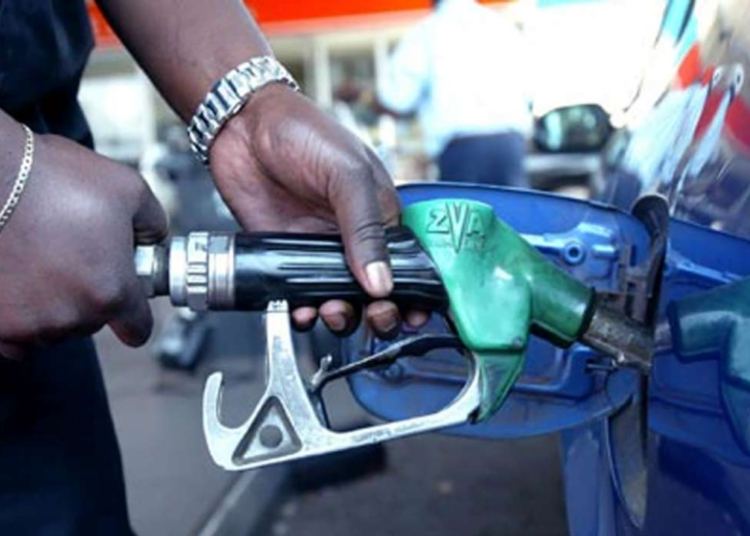Towards the end of the immediate past government of President Muhammadu Buhari, the Major Oil Marketers Association of Nigeria (MOMAN) came up with an excuse attributing the lingering fuel scarcity in the country to high costs of vessels and inadequate trucks to deliver petroleum products from depots to filling stations across the country.
The major problem in the current administration of President Bola Tinubu is the removal of subsidy as it has led to the price of a litre of petrol to about N620.
The subsidy removal in May has triggered skyrocketing fuel prices in Africa’s largest oil producing country. About three months after President Tinubu scrapped the popular but costly fuel subsidy, petrol prices have risen astronomically (about $0.78) per litre, the highest in the history of the rich oil producing nation.
Nigeria’s refineries are non-functional thereby necessitating the continuous importation of refined petroleum. Fuel importation strains the local currency while the subsidy primarily favoured the cabals and provided the leeway for arbitrage and the illicit transportation of petrol to neighbouring countries.
Moreover, the economy’s key sectors suffer due to low earnings already consumed by inflated subsidy payments. The trade deficit of $20 million recorded in November 2022 from the low crude oil export receipts signalled the urgency to jettison petrol subsidy, develop local production capacity and end fuel import dependency for a favourable balance of trade.
Fuel subsidy was riddled with corruption, manipulation and mismanagement. The N3.92 trillion allocated for petrol subsidy between January 2020 and June 2022, surpassed the combined federal budgets for healthcare, education and defence throughout the 30-month period.
Nigeria spent about N10 trillion on petroleum subsidies between 2006 and 2018. It gulped N5.82 trillion from 2021 – 2022 and N3.36 trillion which was proposed for the first six months of 2023. These figures indicate a significant drain on the government’s finances, impeding its ability to invest in crucial sectors which could bolster economic growth and people’s well-being.
The highlight below is the breakdown of prices of petroleum from the exit of the past administration to the coming in of the present government which had been unstable and very ridiculous.
– As at last year, a litre of petroleum cost N161.
– Towards the end of the year, there was scarcity of petrol which resulted in buying fuel from the black market at the rate of N200 to N250 per litre.
– At the beginning of 2023, the official rate became 197 per litre that lasted up to the exit of the previous government.
– In June 2023, the present government declared removal of subsidies which resulted in petrol costing N520.
Nigeria did not profit from the surge in oil prices due to low oil output and the spike in fuel subsidy expenses. As the country’s total public debt nears N80 trillion, it was not surprising when Edo State governor, Godwin Obaseki, raised an alarm that “It would be a miracle for the federal government and state governments to pay salaries beyond June this year without resorting to massive printing of money or removing fuel subsidy. Either of these decisions will bring more hardship and pain to Nigerians, particularly workers.” Such a dilemma and tough decision. The government was confronted with either continuing the subsidy and deepening an unsustainable fiscal deficit or risking potential social and economic unrest by its removal. Notwithstanding, the subsidy had to go. The fuel subsidy removal could save Nigeria approximately N7 trillion annually which could be channelled to other critical sectors like infrastructure, education and health.
The government had repeatedly said that the subsidy on petrol was unsustainable due to the amount spent. Over N4 trillion was expended on petrol subsidies last year, more than the government spent on education and healthcare combined. President Tinubu had recently said that the federal government has saved over N1 trillion in the past two months following the removal of subsidy on petrol.
Some of the savings will be used as low-interest loans for businesses, including small, medium and micro enterprises, the president said.
The subsidy removal has also led to increased government revenue, with total distributable revenue increasing from about N786.161 billion in May to about N1.9 trillion in June as the government earned money that would in the past, have been used to subsidise petrol.
As fuel prices increased, many people did not only see their transportation costs go up but food and other essential commodities as well.
In addition, many private transportation services, such as taxis and ride-sharing apps, also increased their prices. All of this has made it harder for people to go around with ease and has had a negative impact on the economy. As it stands, people with no strong reason to go out now stay indoors/ at home.
Many people in Nigeria rely on food that is produced locally, and the cost of transporting that food has also increased due to the higher fuel prices. In addition, many farmers have had to pay more for fertilizers and other inputs, which has also driven up food prices.
Life has become unbearable for Nigerians and it is hoped that the government will find a lasting solution that will bring Nigerians back to a comfortable and reasonable living again.
– Fatima, Mass Communication Department, ABU Zaria.











